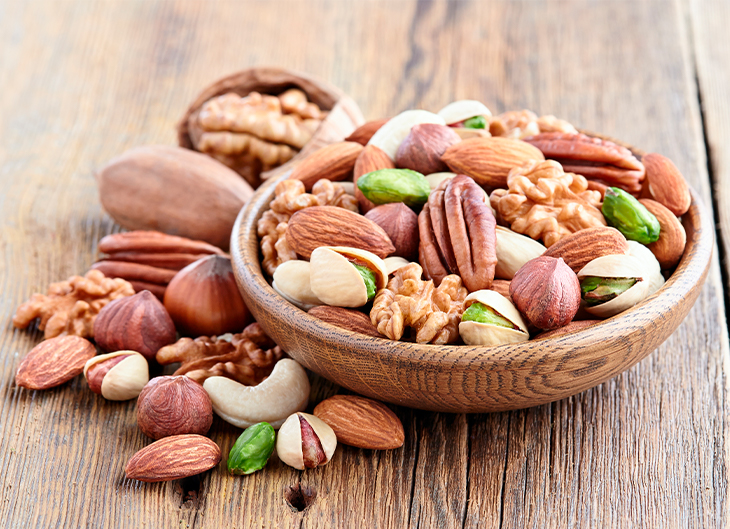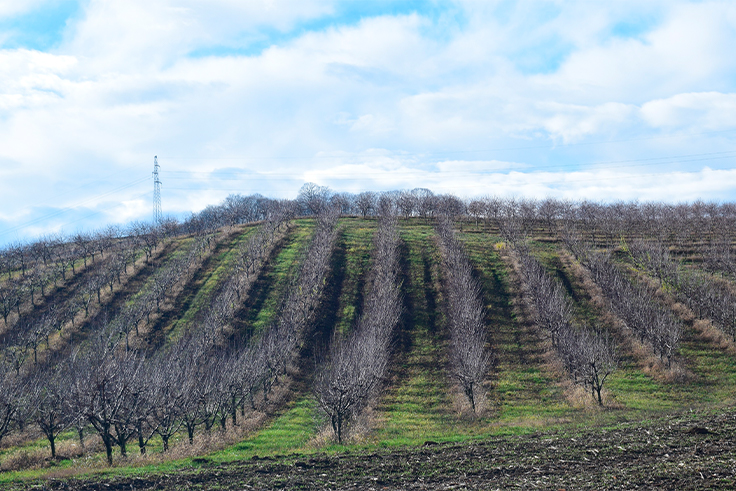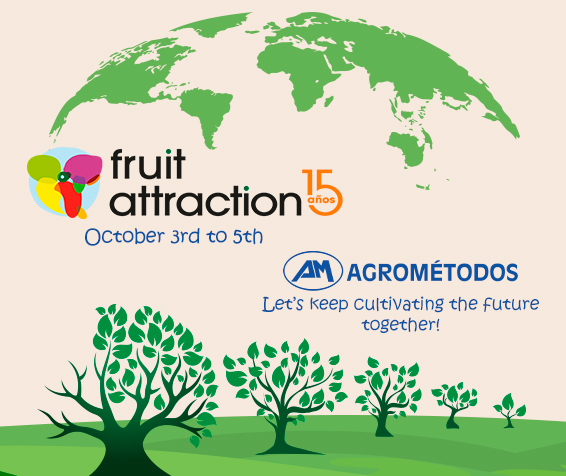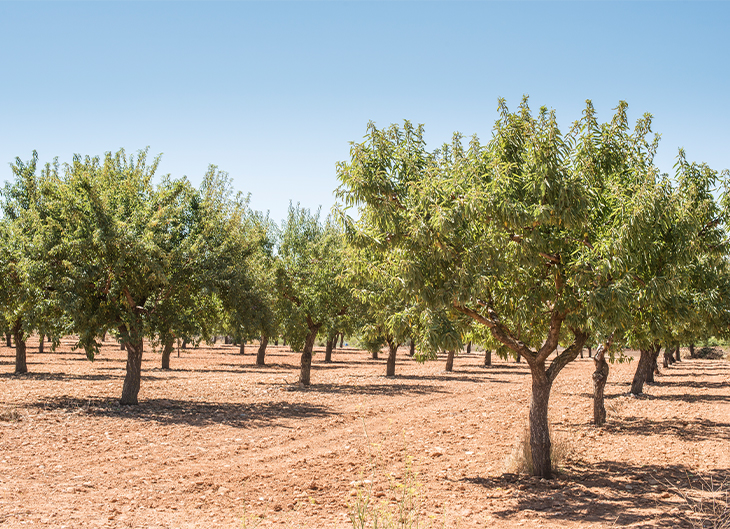
Situation of nut cultivation and the importance of wood treatment
Global production and export of almost all varieties of nuts is widespread. In Spain, there is also a boom in these crops due to the increase in demand in the EU, where purchases have grown by 17% in the last five years. The areas and productions of walnut, pistachio and almond trees were the ones that grew the most in 2020, according to a study by the Ministry of Agriculture, Fisheries and Food (MAPA).
In this study it is observed that the crop that has experienced the greatest growth in recent years has been pistachio, already reaching 48,000 hectares planted, with growth in 2020 of 31% in rainfed and 20% in irrigation. This crop is of recent implantation and a fact that corroborates it is that 63% of this area has not yet entered production.
The almond tree remains the majority crop, it continues to grow, although in a smaller proportion than previous years. In this crop a varietal change is observed for the new plantations. Although the Guara variety is still the majority in dry land, the traditional varieties of Comuna, Largueta and Marcona barely represent 5% of the total new plantations carried out between 2017 and 2020. The Lauranne/Avijor variety accounts for 20% of the new plantations, and others such as Penta, Vairo and Soleta account for 17%. The varietal change is a reflection of a clear adaptation both to the equilibrium of the market and its structure of demands and to the conditions of each territory and production areas.
The study also shows that walnut is another crop clearly expanding, with a registered area of 9,550 hectares, although 27% are new plantations that have not yet entered production.

In these crops and in all those evergreen fruit trees, between the last third of winter and early spring, with the beginning of flowering or before it, it is important to take into account the infections caused by fungi (monilia, chancres, etc.), since the perfect humidity and temperature conditions for their proliferation are given. In this sense, it is very important and advisable to carry out at this time some phytosanitary treatment, with the aim of preventing the appearance of certain diseases and pathogens.
What we seek with this wood treatment is on the one hand to protect the plant from the entry of bacteria and fungi, and on the other to reduce the wintering forms of pests and fungi, which spend the winter in any protected corner (trunk, branches or buds).
This treatment must be preceded and / or accompanied by a good management of the crop making a selection of varieties resistant to fungi, a rational use of the fertilizer to avoid excess vigor, pruning that facilitates the aeration of the plant, the destruction of affected plant remains, etc.
As mentioned, during the time of the overflow of buds (pink button) it is common to apply paraffin oils and formulated based on different types of copper salts generating an insecticidal action to combat the eggs and larvae of insects and fungicide / bactericide respectively.
Also, phytosanitary treatments with oils in winter allow to prevent and reduce pest attacks in spring. These compounds act by suffocation by blocking the spiracles of insects
or the stigmas of mites, although it is important to mention that paraffin oils have a lower effectiveness against insects, so it is important to mix them together with insecticides.
Both paraffin and vegetable oils have a short period of residual activity, the latter being much more respectful of the auxiliary fauna.
Agrométodos recommends the use of QUASSAR® as an effective and natural alternative to mineral oils since it is a natural and biodegradable product that respects the auxiliary fauna and helps improve the effectiveness of acaricides, insecticides, fungicides, herbicides and nutritional.
In this sense, QUASSAR®, being a careful formulation based on natural substances from plant compounds, provides a series of advantages over mineral or paraffin oils by:
- •Improve the quality of treatments:
- •Optimal wettability and adhesion, when producing a satisfactory distribution and a good wetting of the plant reducing losses.
- •Perfect coverage of all parts of the plant, including hard-to-reach areas and pruning cuts.
- •Great capacity of penetration of the treatments overcoming even the obstacle of pubescence.
- •Allow, thanks to its properties, its use with much lower application doses, achieving greater ease of storage, transport and handling.
In short, QUASSAR® enhances the effectiveness of phytosanitary treatments, improving their effect and making their application safer and more homogeneous.


![IMG-20191031-WA0010[1]](https://www.agrometodos.com/wp-content/uploads/2019/12/IMG-20191031-WA00101.jpg)


